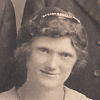Yet another Netflix offering: Everything is Illuminated. Overall, very good movie, but let's start with the criticism.
First of all, I almost didn't make it through the first half hour. It's starts out... kind of offensive, honestly, what with the stupid violent half-insane Ukranians who are stuck in 1983. Thankfully, that changes about 1/2 hour into the movie, and by the time the last of the "comedic" elements is dropped an hour in, so are the worst of the stereotyping annoyances.
Second, for the movie as a whole, I found myself thinking that would work better if the character of Jonathan were a young woman. The movie involves the breaking down of emotional walls between the three main characters, and it really seems to struggle getting that to happen. I'm not quite sure how to describe it, but there seems to be a sort of awkwardness of "I want to open up, but I'm a man in front of other men, I'll lose face", and it doesn't seem an intentional part of the movie. It doesn't come across as part of the journey; rather it seems an obstacle to the storytelling. I think having a woman in Jonathan's role would have both been a catalyst to more of those emotional reveals, as well as made the ones we do get feel less forced.
However, I'm fully aware there's no way that could have happened, because the original novel about Jonathan Safran Foer was written by a guy named... Jonathan Safran Foer. Oh gosh. I'm glad I didn't know that before I started watching. (I will remark that it must say a lot about the quality of the novel that any publisher even touched it after seeing that.)
OK, major complaints out of the way. The movie starts as a comedy of the type I don't care for, but luckily that changes in what I found a very good scene. Jonathan, Alex, and Alex's grandfather are chatting in a restaurant, and it comes up in conversation that Jonathan's grandmother would not have approved of his trip and that she never wanted him to go to the Ukraine because before WWII, it was "as bad as Berlin. When the Nazis came, she thought it'd be an improvement." Alex, who starts his narration of the movie with a racial slur and speaks of his family's negative attitude towards their Jewish customers with ease and comfort, looks sincerely horrified, turns to his grandfather, and asks "He says that Ukranians were very anti-Semetic before the war. Is that true?" At the same time, his grandfather is absorbed in looking at the 1940s photo of Jonathan's grandfather with an air of great somberness. It's as though in this scene Alex and his grandfather stop being walking stereotypes and start being actual human beings.
The comedic elements start to drop out after that, and once it admits that it really wants to be a drama, it gets really good. I'm really hard pressed to chose my favorite parts. Walking into Lista's house and seeing all the things that she has saved from the remains of Trachimbrod. The reveal about Alex's grandfather, and how he reacts to again coming face to face with his past. Alex trying to open up to Jonathan, and yet struggling (when it works, at least).
Overall, it's worth a watch. Not everyone will like it, but it definitely has its moments.
Saturday, September 27, 2008
Subscribe to:
Post Comments (Atom)

No comments:
Post a Comment
Note: Only a member of this blog may post a comment.